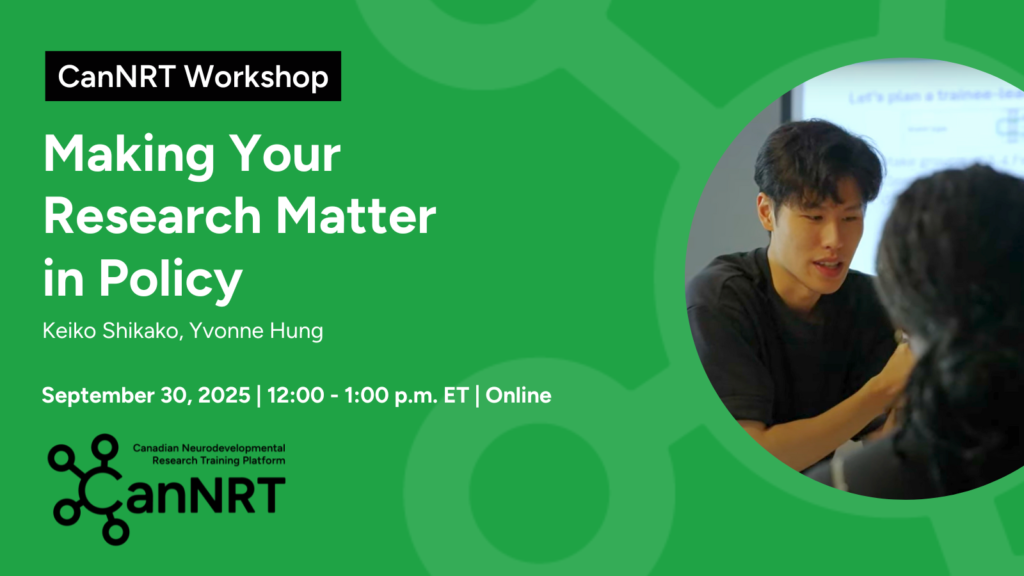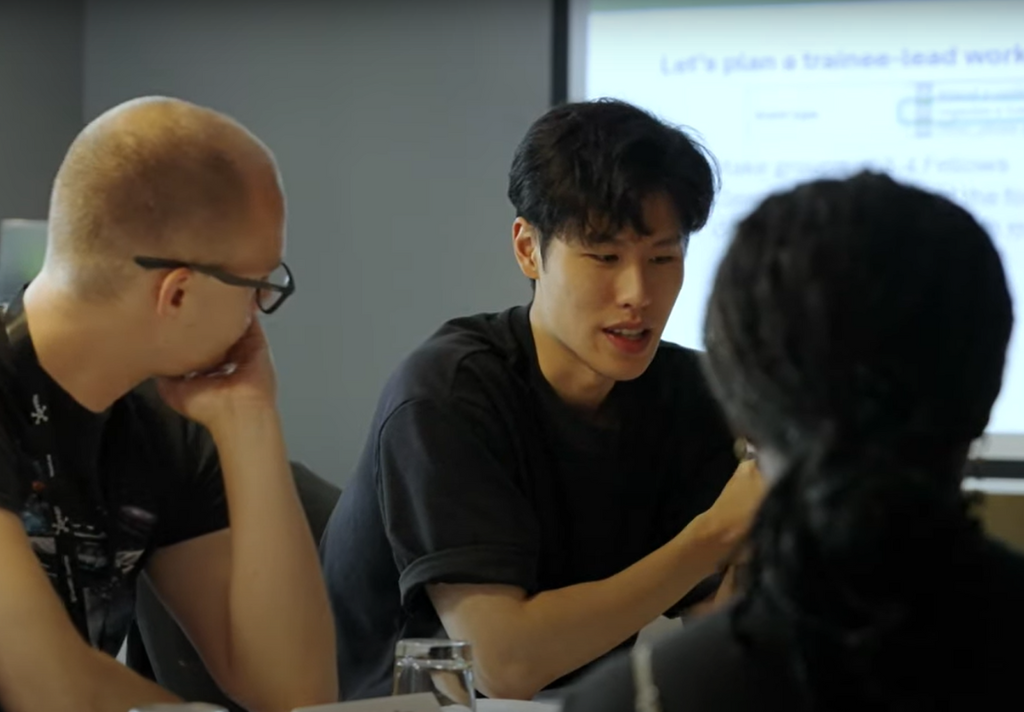Overview
Speaker(s): Keiko Shikako, Yvonne Hung
Date: September 30, 2025
Time: 12:00 to 1:00 p.m. ET
Language: English
Format: Online (via Zoom)
Audience: CanNRT Trainee Members
*Note: If you’re not yet a Trainee Member, you can join CanNRT for free to access this and other events and opportunities.

About
Making Your Research Matter in Policy is designed to help graduate trainees bridge the gap between academic research and real-world policy impact. Building on the titles and themes participants have previously developed, this interactive session will guide them through free writing and structured brainstorming exercises. Trainees will explore how their own research evidence can inform policy outcomes or actions, and conclude by drafting a concise pitch to communicate their ideas effectively.
Learning Objectives
- Identify Policy Relevance: Recognize how their individual research projects can contribute to addressing current policy challenges.
- Translate Research into Action: Develop skills to brainstorm and articulate potential policy outcomes or recommendations grounded in their evidence.
- Communicate with Impact: Practice framing research insights into a clear, compelling policy pitch for decision-makers.
Speakers
Keiko Shikako, PhD, (@KeikoShikako) is an Associate Professor at McGill University and the Canada Research Chair in Childhood Disability (Participation and Knowledge Translation). Her research focuses on knowledge translation science and the rights of children with disabilities. Her current research includes the Jooay App, a free app that connects children with disabilities and their families to leisure opportunities in their neighborhoods. She also co-leads the CHILD-BRIGHT Network Knowledge Mobilization Program and leads the network Policy Hub.
Yvonne Hung, PhD, is the Director of the McGill Writing Centre, McGill University’s central resource in written communication. In this capacity, she oversees its suite of undergraduate and graduate courses, the Graphos program focused on graduate students and postdocs, a Tutorial Service that offers individual writing consults to students, and various special projects, including a “Writing for Publication” collaboration with the Ingram School of Nursing. She was a member of the QART Advisory group, where she took great satisfaction in working with others to support QART’s training mandate. With the launch of the CanNRT platform, Hung continues to be involved by developing curriculum as a Priority Area Lead in the area of scientific writing and communication.
Questions?
Contact: Roberta Cardoso
Priority Area Leads (PALs) Coordinator, CanNRT
roberta.cardoso@muhc.mcgill.ca
___

